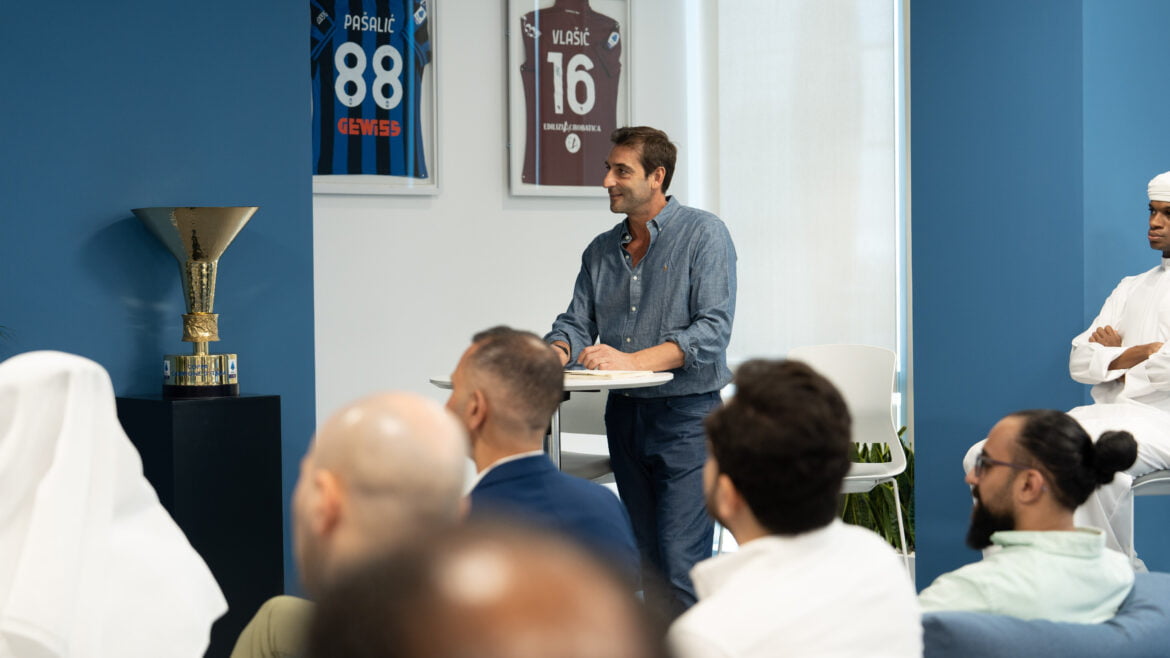Italy’s Serie A is targeting investment opportunities from the Middle East, as the football league becomes increasingly attractive to global lenders and private equity giants.
The Gulf region has sizeable interests in English football, including Saudi-backed Newcastle United and Manchester City FC, which is majority-owned by Abu Dhabi United Group.
Qatar Sports Investments is also behind French Ligue 1 champions Paris Saint Germain.
However, as yet, there is no Middle East ownership in Italy’s top league, which is dominated by money from the US.
Abu Dhabi sovereign wealth fund Mubadala was linked with a move to buy this year’s Champions League finalists Inter Milan in 2021. A $1 billion deal from Saudi’s Public Investment Fund to buy Inter, first mooted last year, also failed to materialise.
Bahraini investment fund InvestCorp was reported in April to be part of a consortium also looking to buy the club, having previously been linked with a move to purchase city rivals AC Milan.
Alfonso De Stefano, Serie A’s Mena managing director, told AGBI: “I’m absolutely aware that it’s something that could happen in the future.
“We have in our league several clubs under foreign ownership and there is always an eye open from this region to Italian football clubs.”
Serie A opened its Middle East office in Abu Dhabi this week, its second outside Italy after previously launching operations in New York to cover the North American market last year.
From its new base at the Yas Creative Hub in the UAE capital, Serie A will look to increase its fanbase, partnering with sports authorities and businesses across the region and raising the profile of leading clubs.
In 2011, all Italian Serie A clubs were owned by Italians. Half the league’s 20 clubs are now majority foreign-owned. Nine of those 10 purchases were completed by North American investors or consortia.
“The country has one of the richest and most prestigious football histories and cultures: an abundance of trophies both at the national and club level, legendary players, top coaches and famous clubs – all great assets when branding is a key factor in a potential deal,” according to the KPMG Football Benchmark Club Valuation report.
No Italian clubs made it into the top ten of the latest edition of the Deloitte Football Money League, released earlier this year.
Juventus dropped from ninth place to 11th with revenues of €400.6 million, while Inter Milan was listed 14th (€308.4 million) and city rivals AC Milan 16th (€264.9m). Revenues were impacted as a significant portion of the 2021-22 season was played under Covid-enforced crowd restrictions.
Simon Chadwick, professor of sport and geopolitical economy at Skema Business School in Paris, said Italian football has been “the sleeping commercial giant of European football”.
“Both the league and individual clubs represent a potentially lucrative opportunity, especially as in recent years we have begun to witness a more strategic and commercially oriented transformation of Italian football,” he said.
“The sector therefore represents a low-cost, value-for-money alternative to the English Premier League.”



